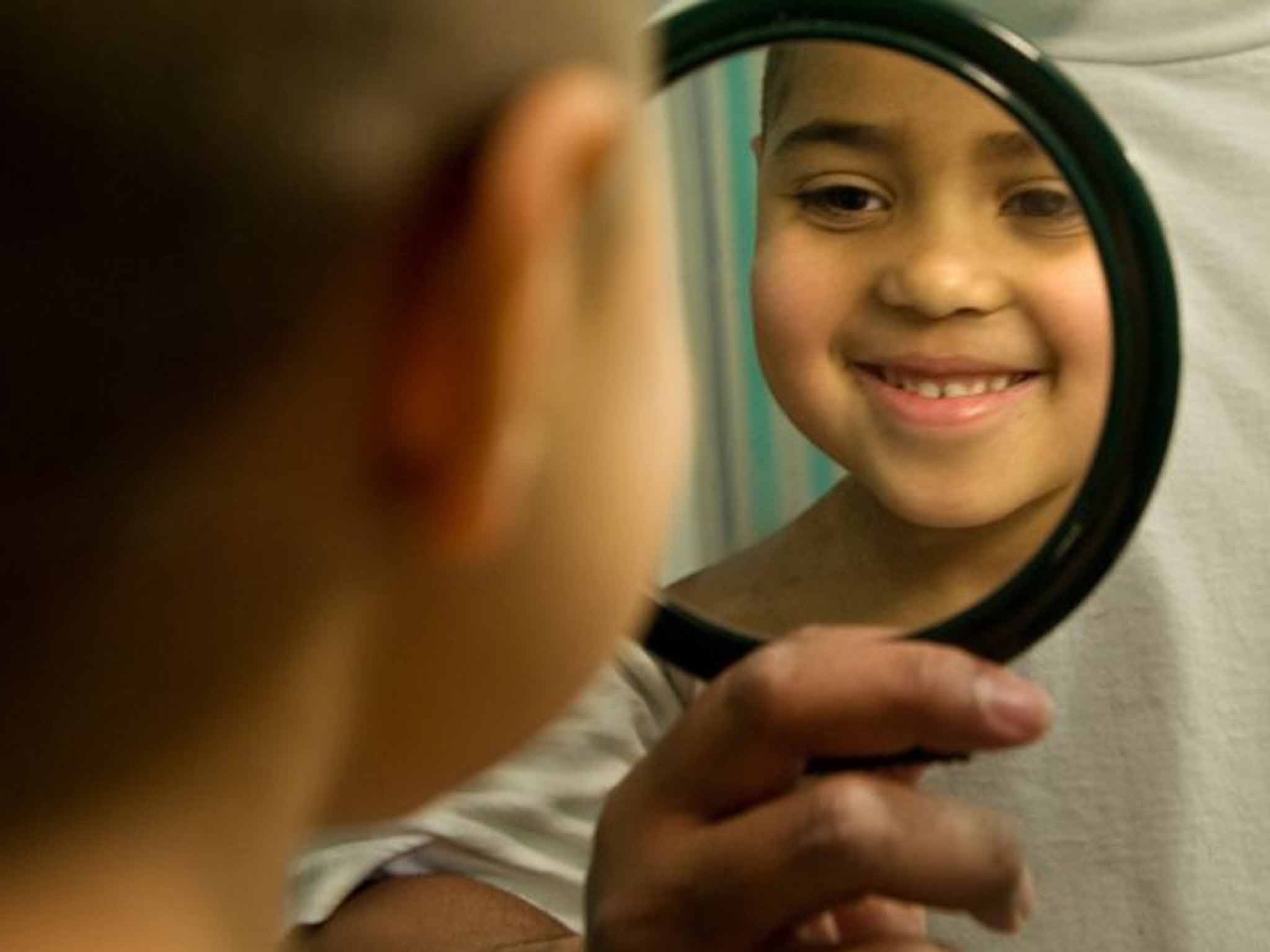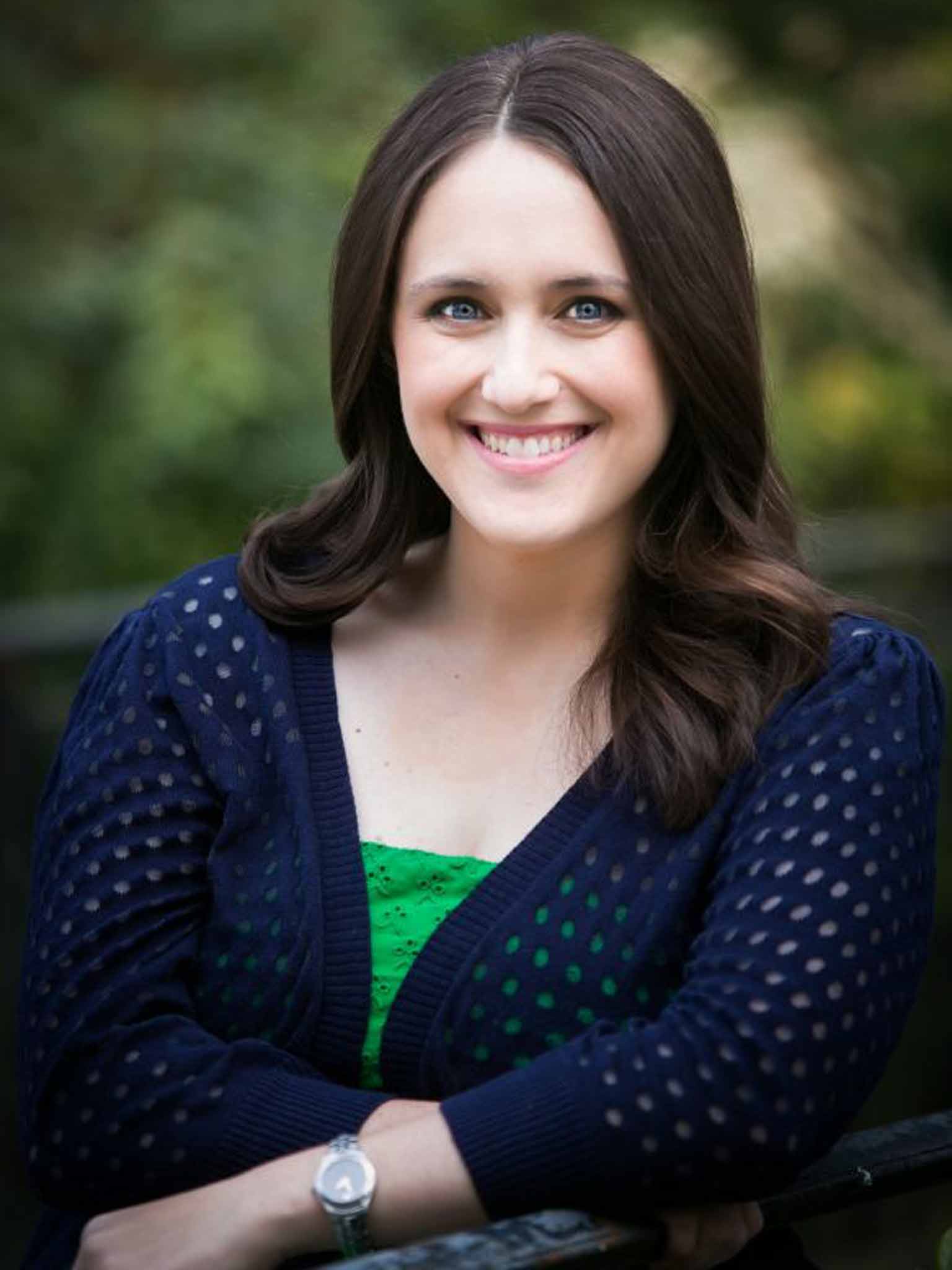Gender nonconforming children: Coming to terms with sexual identity
"The parents in this group are exceptional. They see the beauty in their children's gender expression. They celebrate it."

Your support helps us to tell the story
From reproductive rights to climate change to Big Tech, The Independent is on the ground when the story is developing. Whether it's investigating the financials of Elon Musk's pro-Trump PAC or producing our latest documentary, 'The A Word', which shines a light on the American women fighting for reproductive rights, we know how important it is to parse out the facts from the messaging.
At such a critical moment in US history, we need reporters on the ground. Your donation allows us to keep sending journalists to speak to both sides of the story.
The Independent is trusted by Americans across the entire political spectrum. And unlike many other quality news outlets, we choose not to lock Americans out of our reporting and analysis with paywalls. We believe quality journalism should be available to everyone, paid for by those who can afford it.
Your support makes all the difference.A room full of dressing-up clothes: princess gowns and gauzy scarves and sundresses and skirts. A boy pulls a dress out of the pile, slips it on over his jeans, and asks me to zip him into it. Then, he smooths the skirt down and adjusts the spaghetti straps – and begins to walk differently, proudly, self-consciously. He doesn't try to explain the way the dress makes him feel. He doesn't need to. Everything about him glows.
That room full of dressing-up clothes is a real place – it's a support group for gender nonconforming children, who meet in the basement meeting room of a church in Washington, DC. As a psychologist, I volunteered as a co-leader of this group for seven years. There are boys in princess gowns and girls with cropped hair aged between five and 12. Some are trans kids. Some avoid labels. Many of the boys will come to identify as gay or bisexual. But most of the time, they're still figuring things out. Piecing together their identities is the entire point.
The evening is unstructured, and the kids run the show. Sometimes the dressing-up clothes come out. Sometimes there are elaborately choreographed fashion shows with multiple costume changes. But sometimes everyone just wants to colour or play in the playground. In every way, the group thrives on flexibility, change and fluidity. Children join and leave and re-enter the fold. Names and pronouns change. And down the hall of that church basement, a group of parents and clinicians strategise and discuss and brainstorm and advocate for kids whose needs seem to evolve daily.
The parents in this group are exceptional. They see the beauty in their children's gender expression. They celebrate it. They roll with it – but there are speed bumps everywhere. How do you respond when your son is uncomfortable taking his shirt off at the pool? (Cue recommendations for "rash guards" and swimming tops.) What do you do when your son wants to wear a dress to school? (Let's talk about the social environment at that particular school). Everything depends on the particular kid, and everything depends on the context.

I used to think that gender was a social construction. I'd look at the way toys are shelved in stores, and be amazed at how rigidly we prescribe these preferences for children: dolls for girls and trucks for boys. Pink and blue. And I do believe many of these norms are artificially constructed. There are a million tiny ways we reinforce gender stereotypes from the moment children are born. But there's something else there. I want to say we're blank slates, but I think it's more complicated than that.
If the boys in that room come alive when they wear dresses, that's not a product of socialisation. It's something essential that burns inside, even when all of society steers them toward the truck aisle. There's this constellation of stuff that we think of as feminine, and that we associate with girls – such as Disney princesses and ballerinas and ballgowns. But certain boys are drawn to this stuff just as fiercely.
It's these boys who make me believe that there's a certain essentialism to the things we love, the things we find beautiful and interesting. But as a society, we label toys and clothes and colours and almost everything else along gender lines – and so it starts to feel like gender identity is essential, too. When a child says, "I feel like a girl," that means something to us. When a child says, "I like boy stuff," or, "I like girl stuff," that means something, too. Maybe it shouldn't, but it does.
Often, these identifications happen and we don't bat an eye. A little girl loves to dress like a princess. A boy feels like a boy. But for the kids in that basement, it gets a little different. Because people don't always understand that you're a girl, but you like boy stuff. Or that you feel like a girl, even though everyone tells you you're a boy. Or maybe you're a kid who doesn't feel like a boy or a girl, but wonders if it's OK to just feel like a kid. It's personal and individualised and very, very complicated.
I hung out in that basement once a month for seven years. And the group there – kids, parents, volunteers, and clinicians – changed me profoundly in ways I'm only beginning to understand.
The bravest, coolest kids I've ever met, these are the ones who inspired my book, Simon vs the Homo Sapiens Agenda, an email love story about a cute pair of gay teenage nerds. True, the kids in the group are a few years younger than Simon – love, sex and attraction aren't necessarily on the table yet – but their search for authenticity is very real.
These kids are already grappling with huge questions about identity, even as their identities are very much in flux. In many ways, this is a uniquely LGBTQ experience – but there are also threads of something universal. Everyone changes. There are moments when we don't recognise ourselves. There are moments when core aspects of our identities shift and expand. And when that happens, it feels weird.
I remember the weirdness. I remember being a girl who hated boys. They were gross and they sucked, and I wasn't going to interact with them more than necessary. Except that, somewhere toward the end of elementary school, certain boys started to interest me in ways I didn't entirely understand. There was the tween actor with the floppy fringe whose face I wanted to keep looking at. There was the feeling I got when a certain boy from class took the seat next to me.
But that wasn't me. It couldn't be me, because I hated boys and I always had. So, I doubled down. I guarded those first flutters so carefully, you'd have thought it was a matter of life and death. Never mind that people around me were fessing up to crushes and slow dancing and kissing. I didn't know how to change my mind about that stuff without feeling like a different person entirely. It's a strange box to be stuck inside – and though it never entirely goes away, it's very much a teenage feeling.
As a clinical psychologist, I've been given the privilege of reliving this. As adults, we sometimes forget how all-consuming and awkward and amazing that feeling can be. And that's the story I've tried to capture.
While Simon can be described as a book about coming to terms with sexual identity, it's really about that terrifying, thrilling process of figuring out who you are at a time when your entire identity – sexual, social, and emotional – is a moving target. So much of growing up is this search for authenticity. We zip ourselves into new dresses. We find beauty in uncertainty, fluidity and change.
Even though this story is about a gay teenage boy, I think it holds relevance for all of us. It's for those of us who have had crushes, or who have struggled to define ourselves, or who have wanted to step outside the boxes people have prescribed for us. Growing up isn't easy; it's painful, awkward, terrifying and confusing. But through all of it, there's that joy of becoming who we are – which is an awesome big deal.
'Simon vs the Homo Sapiens Agenda' by Becky Albertalli (Penguin, £7.99) is out now
Join our commenting forum
Join thought-provoking conversations, follow other Independent readers and see their replies
Comments